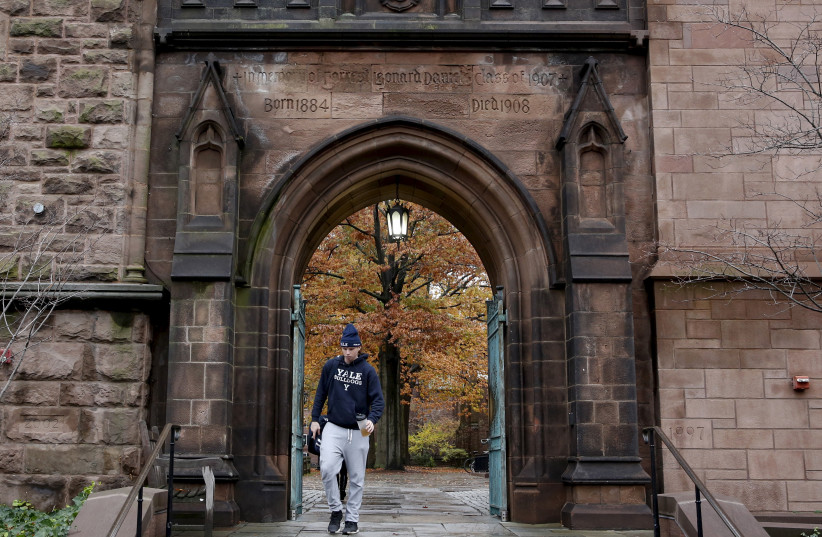The Yale Daily News apologized on Tuesday for issuing an editor's note on two opinion pieces published shortly after Hamas's October 7 terrorist attack on Israeli civilians. The note in question challenged the piece's statement that Hamas terrorists had raped and beheaded some of their Israeli victims, asserting that these allegations were not confirmed.
In fact, as the paper acknowledged this week, by the time that note was added, several credible news organizations had confirmed that both rape and beheading had taken place.
The first piece, published October 12, was a condemnation of Yalies4Palestine, a pro-Palestinian student group that first celebrated, then blamed Israel, for the October 7 attacks. "Is Yalies4Palestine a hate group?" Sahar Tartak, an Israeli-American who is a sophomore at the university, asked.
"There is no place," Tartak wrote, "for student organizations who publicly celebrate the murder and kidnapping of innocent civilians. Y4P glorifies terrorism, cloaking it in the language of justice and human rights to feign innocence. For shame." The second piece, called "Stop justifying terrorism," made similar criticisms of that group and others.
On October 25, the newspaper edited Tartak's article and removed references to rape and beheading by Hamas terrorists on October 7. "This column has been edited to remove unsubstantiated claims that Hamas raped women and beheaded men," an editor's note read at the bottom of the piece.

'Corrections' came well after atrocities were proven
The corrections were "modeled on reporting and corrections from other outlets," wrote Anika Seth, the paper's Editor-in-Chief, in the apology on Sunday, linking to an article from the American Jewish newspaper The Forward and an article in the blog Politico. Both articles were published on October 11, prior to the publication of the Yale Daily News articles in question, and said that while there were reports of rape and beheading, neither was confirmed at time of publication.
By the time that the Yale Daily News issued the 'corrections,' however, both rape and beheadings had been confirmed by credible sources. The newspaper "retracts those editor’s notes," Seth wrote, "in their entirety and without qualification." Seth added that it was "never the News’ intention to minimize the brutality of Hamas’ attack against Israel." The post concludes by noting that the staff of the newspaper has received threats in recent days and condemns those threats.
"The News remains committed to reporting the facts and to creating a forum for free, fair, and honest campus and community dialogue," it closes.
The editor's notes had garnered criticism online. "This is Holocaust denial in real-time," said Bari Weiss, the former New York Times columnist and author of 'How to Fight Antisemitism," on X.
Already a sensitive topic
It is now well-documented that Hamas terrorists raped and beheaded Israeli civilians on October 7, however, denial of those and other atrocities remains widespread. A frequent target of skepticism is the US government's supposed claim that Hamas 'burned 40 babies,' a claim that in fact was never made. A photograph of a burned baby shared on X by conservative commentator Ben Shapiro was widely alleged to be AI-generated. This claim has been debunked.
Doubt has also been cast on reports that children were beheaded, although this too has been confirmed. Forensic examiners have said, however, that it is unclear whether the children in question were killed by beheading, or whether their bodies were decapitated once they had already been killed.
In recent weeks, the Israeli government has hosted screenings of a collection of footage from the attacks, made largely out of footage recorded by the terrorists themselves. The film was shown first to foreign journalists, and then to Ministers of Knesset in Israel, some of whom can be seen in videos sobbing outside the screening room. On Thursday, November 2, Israel also launched a website, http://hamas-massacre.net, with footage of the atrocities, and urged viewers to share the website with others.
These efforts have been compared to the Allies' tours of Nazi concentration camps following the defeat of Germany in World War II.
